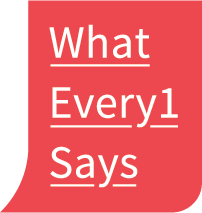What should you do when you realize you’re living in a dystopia? The wisdom of Ursula Le Guin helped us to tackle this question in “Reading with Scientists.” We began by reading Le Guin’s classic short story “The Ones Who Walk Away from Omelas.” Coming in at only ten pages, the plot is simple, yet powerful: a beautiful city, Omelas, seems to be perfectly happy, yet each inhabitant learns in early adolescence that the social contract keeping such happiness intact is the misery and torture of a single child. Most of the inhabitants stay, living with and justifying the knowledge, but a few leave, never to return. Part of Le Guin’s brilliance is that she makes her readers complicit in the construction of Omelas – allowing you to “imagin[e] it as your own fancy bids” (278) – before revealing its fatal flaw.
Our discussion first hinged on a single question: is it better to leave Omelas or to stay in Omelas? Students talked among themselves in small groups and then we came together as a class to map different reactions on the board. We generated several columns: “reasons to leave,” “reasons to stay,” “other options,” and “notes.” Overall, students argued for the need to stay and change the society, rather than walking away. Though the story is often interpreted as celebrating the moral compass of “those who walk away from Omelas,” my students saw this route as one which ignored the problem and failed to address inherent injustice. Creative solutions abounded, including to take the child’s place on a rotating basis, thus distributing suffering equally among the citizens of Omelas; to stage a revolution; to leave, only to return with help; to integrate the child into society; or to advocate for change within the system. Students also doubted whether the fear that Omelans hold to be true – that if the child is liberated, the entire social structure will collapse – would actually come to pass; they considered the possibility that such fear could be the basis of an elaborate deception, which people only mistakenly believed. Some students did point out, however, the deep, inescapable truth ingrained in the story: all happiness is to some extent inextricable from the knowledge of suffering. When asked for the moral of Omelas, students came up with several: recognize systemic issues, pay attention to suffering, and understand your own complicit participation.1
During the next class session, we pivoted to a new set of questions: What happens when Omelas is no longer fictional? What is our Omelas and what would it mean for us to stay or walk away? The particular dystopia that I wanted the class to consider was Big Data (the use of computational tools to collect and analyze information on a massive scale), particularly in its capacity to foster economic disparities. Two readings framed our discussion: Weapons of Math Destruction: How Big Data Increases Inequality and Threatens Democracy by Cathy O’Neil, and Automating Inequality: How High-Tech Tools Profile, Police, and Punish the Poor by Virginia Eubanks. (I excerpted the introduction from the former and the concluding chapter from the latter.) Each text explores the human costs of technical innovation, chronicling the negative consequences that can arise when policies and programs are informed by abstract calculations rather than compassion, or even common sense. As O’Neil writes, “Welcome to the dark side of Big Data” (13).
In a big chart on the board, we compared the dystopias described by Le Guin, O’Neil, and Eubanks. Students identified several similarities. For example, both Omelas and Big Data are governed by a “higher power” – in the former, the power is a set of inscrutable social laws, and in the latter, the power is a set of inscrutable algorithms. Algorithms operate according to a similar “black and white” logic as the society of Omelas and, like most of Omelas’s inhabitants, algorithms lack empathy for suffering. Both Omelas and Big Data also require human sacrifice. But whereas the cost of happiness in Omelas is the suffering of a single child, Big Data balloons such suffering into the systematic inequality of millions of people. (As a tie in to previous class discussions, the utilitarian principle at the heart of Omelas – sacrificing the one for the good of the many – also prompted students to reconsider issues we had broached in relation to driverless cars.)
The key questions to which our discussion led us were: What should we do about it? How do you change a culture? I asked students to imagine that they worked at a tech company and were uncomfortable with how big data was being used. How should they react? Students proposed several internal changes they could make, such as putting data in perspective with historical and social contexts, human feedback, and qualitative assessment. Students also suggested creating an awareness of the social dynamics within a company and involving community members in decisions. As a class, we considered several alternatives addressed by Eubanks, including Universal Basic Income and an “Oath of Non-Harm for an Age of Big Data,” which listed items such as “I will use my skills and resources to create bridges for human potential, not barriers” and “I will design with history in mind” (212-213). Of particular note was Eubanks’s emphasis on narrative as a key site for change: “the best cure for the misuse of big data is telling better stories” (205).
An issue that we’ve raised throughout the quarter is whether technological advancement is inevitable – in other words, will the development of artificial intelligence and driverless cars and genetic engineering proceed, regardless of our everyday feelings about them? Here, we raised the question again in the context of Big Data – now that the computational processing of information has become the norm for decision-making at all levels of society, can it ever be otherwise? Students commented that technology might be inevitable but that we can choose our reactions accordingly.2 A point of note was that those who leave Omelas leave alone; each “falls silent” (283), and no one seems to discuss the horrible truth of the city once they learn of it. Resistance in the story happens quietly and individually – there are no social leaders or teachers who might provide connections between people and encourage systematic communication across barriers.
But our reaction to dystopia need not be the same. Specifically, we can harness education as a way to foster just such communication, and I hope that interdisciplinary conversations like those in “Reading with Scientists” can be a small step forward. What stuck out to me in our discussions was that my students seemed to approach the problem of Omelas in terms of social movements, rather than individual reactions. Though we didn’t say so explicitly, I would guess that such a tendency stems from the conditioning of social media with which this generation has grown up (with the irony, of course, being that social media companies are one of the biggest culprits when it comes to mishandling big data). When Le Guin accepted a lifetime achievement award from the National Book Foundation in 2014, she described the power of science fiction writers as one which can provide “alternatives to how we live now.” We need such writers to “see through our fear-stricken society and its obsessive technologies to other ways of being and even imagine some real grounds for hope.” For me, one real ground for hope is the capacity of students to tackle problems with creativity, to think in terms of social collaboration rather than isolation, and to work through narrative towards action.
Notes:
- For more on the pedagogical potential of Omelas, see Gabrielle Bellot’s recent Tor.com article: “Ursula Le Guin’s ‘The Ones Who Walk Away from Omelas’ Defies Genre.”
- Both Le Guin and Eubanks comment on this point. For Eubanks, “there is nothing inevitable about this outcome [of big data increasing inequality]. We can dismantle the digital poorhouse” (204). And Le Guin’s National Book Award speech of 2014 includes the powerful sentiment that “any human power can be resisted and changed by human beings.”
Sources:
Eubanks, Virginia. Automating Inequality: How High-Tech Tools Profile, Police, and Punish the Poor. New York: St. Martin’s Press, 2017.
Le Guin, Ursula K. “The Ones Who Walk Away from Omelas.” The Wind’s Twelve Quarters. New York: Harper & Row, 1975.
O’Neil, Cathy. Weapons of Math Destruction: How Big Data Increases Inequality and Threatens Democracy. New York: Crown, 2016.
This post is part of a series about the ongoing UC Santa Barbara English course “Reading with Scientists: How to Export Literature.” For context, read more about the motivations and design process behind the course.
The goal of the Curriculum Lab is to ensure a steady dialogue between research and teaching for the WhatEvery1Says project. For more information, see our webpage and this introductory blog post, and stay tuned for more Curriculum Lab posts throughout the year!


